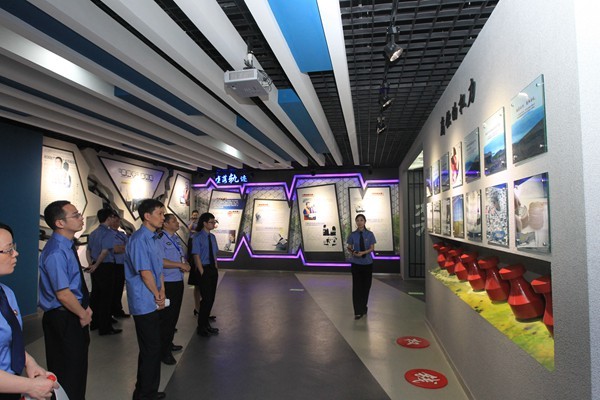From website to prison tours to textbooks to cartoon series, the government now adds what it calls “anti-corruption education bases” to its drive against graft and corruption.
Government officials and personnel visit these places and view the exhibits basically to become more familiar with the possible consequences of being a corrupt worker.
Stories behind the fall from grace of various officials, corporate executives and other powerful individuals in the country and their confessions are on full display in printed documents. They are also either narrated live by the convicted people themselves or through a video recording.
A replica of a real detention facility is also constructed to let visitors see the kind of life behind prison bars. Lectures are given by invited prosecutors. Some talks are also rendered by law experts.
The place is open for everyone.
President Xi Jinping’s aggressive anti-corruption campaign started in Nov. 2012. Since then, graft and corruption charges have been filed against “tigers and flies” in all levels of the government, state-owned firms and foreign companies.
On July 30, Guo Boxiong was proclaimed guilty of accepting bribes by the statement released by the Central Commission for Discipline Inspection. The 73-year-old retired general of the People's Liberation Army (PLA) functioned as vice chairman of the Central Military Commission.
Ling Jihua was also arrested in the same month. The 58-year-old former director of the Communist Party of China’s (CPC) General Office (Sept. 19, 2007-Aug. 31, 2012) and head of the Central Committee’s United Front Work Department (Sept. 1, 2012-Dec. 31, 2014) once worked as chief political adviser to Hu Jintao whom Xi succeeded.
In June, the Supreme People's Court sentenced Zhou Yongkang to life in prison. The 72-year-old retired CPC senior leader served as the country’s chief of domestic security (Oct. 22, 2007-Nov. 21, 2012). His son Zhou Bin, a businessman, was also charged of corruption and was arrested in Dec. 2013.
In March, Jiang Jiemin was formally charged. The 60-year-old former chairman of the oil and gas company PetroChina (2011-2013) was the director of Assets Supervision and Administration Commission (March 2013-Dec. 2013).
In March 2014, Xu Caihou (1943-2015) was formally investigated. The 71-year-old PLA general was a very powerful man, as he was the vice chairman of the country's top military council, the Central Military Commission.
Xu succumbed to bladder cancer on March 15, 2015.
In Sept. 2013, Bo Xilai received a life sentence. The 66-year-old former mayor of Dalian (Feb. 1993-Aug. 2000) and governor of Liaoning (Jan. 2001-Feb. 2004) acted as CPC’s Minister of Commerce (Feb. 2004-Dec. 2007) and as Communist Party Secretary of Chongqing (Nov. 2007-March 2012).
The CPC expelled Bo Xilai, Xu Caihou and Zhou Yongkang from the party.
More than the online watchdogs, compulsory prison tours and exhibits, among others, the investigations, dismissals, arrests and detainments of high-ranking, powerful, influential and moneyed individuals or “tigers” validate how strongly resolved the president is with his anti-graft and corruption campaign.



























